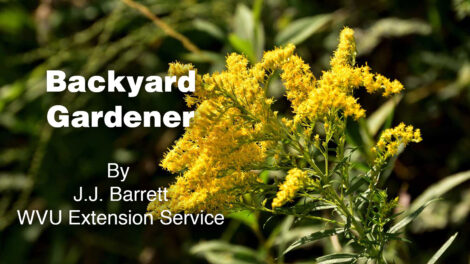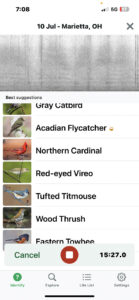Mid-Ohio Valley Climate Corner: Educating for the earth – youth programs can build a greener future

(Mid-Ohio Valley Climate Corner - Photo Illustration - MetroCreativeConnection)
Humans like to imagine ourselves at the top of the pyramid when thinking about our place in the universe. But we often forget that we are just one part of the complex biological processes that govern all life on Earth. Politics, social media, misinformation, and willful ignorance don’t change this fact–but they can confuse us about what’s really happening and mislead us about our future.
Right now, the removal or destruction of decades of scientific data from public access is obscuring our understanding of the world. This is particularly dangerous when it comes to issues like climate change, weather patterns, and the life cycles of foundational species such as pollen producers, plankton, and krill–organisms that form the base of food chains and ecosystems. For example, in 2023, the National Oceanic and Atmospheric Administration (NOAA) faced political pressure to scale back reporting on ocean temperature anomalies and krill population declines. Likewise, in Texas and Florida, educational guidelines have removed or downplayed climate science in textbooks and curricula. Even the USDA’s pollen monitoring network was defunded, making allergy forecasting less reliable.
This erasure contributes to the illusion that if we simply stop measuring change, change itself will stop–that the world will remain comfortable and manageable, especially for those of us living in wealthy nations. But the planet doesn’t work that way. The consequences of climate disruption are real, and ignoring them puts future generations at risk.
This makes it even more urgent to educate our children about how the climate crisis affects the broader ecological systems that sustain us. We are part of a living web that includes animals, plants, fungi, bacteria, and archaea (the oxygen-free organisms living in places like our guts). Remember when science textbooks taught that everything was divided into “animal, vegetable, or mineral?” That’s long outdated. Our current understanding includes five or six biological kingdoms, and the growing interest in probiotics reflects our expanding awareness of the ecosystems inside and around us.
Mid-Ohio Valley Climate Action (MOVCA) has long recognized the need for youth to become climate-literate and civically engaged. For several years, we’ve run a program called Climate Ambassadors to support high school students in designing and completing projects that benefit their local environment. These students have planted trees and gardens, installed bat boxes, founded environmental clubs, and more.
However, we discovered that many students lacked experience in planning and carrying out community-based projects. Schools often treat the community primarily as a source of funding, rather than fostering mutually beneficial partnerships where students can apply their learning to real-world issues. So where do young people gain the skills to collaborate, lead, and take meaningful action?
In response, MOVCA is restructuring the Climate Ambassadors program to focus on partnerships with youth-serving organizations that already provide mentorship and structure. Beginning in January 2026, mini-grants of up to $1,000 will be available to organizations like Scouts, 4-H, and church youth groups. These grants can support existing environmental projects, help launch new initiatives, or connect students to ongoing community efforts:
* PurpleAir Monitoring
Students can help install air quality monitors at homes and public spaces, analyze air quality data, and educate the public about what it means for health and policy.
Contact: Eric Engle – 304-488-4384
* Restoration Ecology
Engage in native ecosystem restoration, remove invasive species, and support habitat for endangered plants and animals. Work sites include Broughton’s Nature Park, the Ohio River Islands, and Mountwood Park.
Contact: Mark Krivchenia – 224-545-1604
* Ohio River Islands National Wildlife Refuge
Activities include forest restoration, mussel propagation, and tree planting–direct work that supports biodiversity and ecological resilience.
Contact: Vic Elam – 620-203-8514
Project leaders are available to provide educational programming about the science behind each effort, helping young people connect fieldwork to real-world science and see the tangible results of their actions.
To apply for a mini-grant or view a list of project ideas, visit movyouthca.com. The deadline for applications is Sept. 15.
Let’s ensure the next generation understands that the health of the planet is tied to their own future–and give them the tools to make a difference.
***
Jean Ambrose is a founding member of Mid-Ohio Valley Climate Action.






